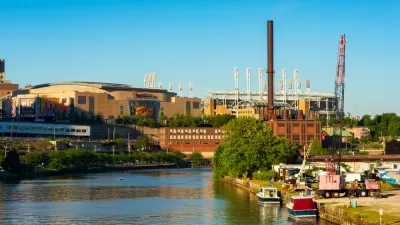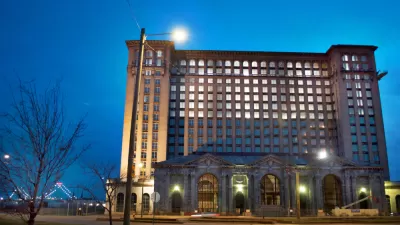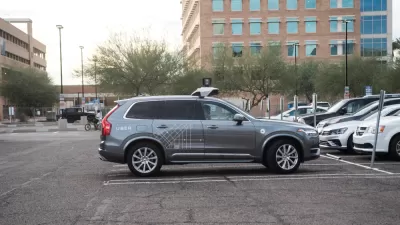When Uber announced this month that it would test-run its fleet of self-driving cars in the Steel City, many probably asked, "why Pittsburgh?" Unlike other post-industrial places, it's been incubating a 21st-century economy.

Earlier this month, Uber announced that Pittsburgh beat out places like Silicon Valley and Singapore to become the "first place in the world where people will be able to grab a ride in a robotic car."
Suffering from the usual litany of Rust Belt ills, the city has been quite successful in its struggle to revive. Angelo Young writes, "As the new century approached, city officials began to steer economic development toward education, health care and technology. The government of Pittsburgh took a lead role in nurturing more than a dozen public and private organizations with the aim of kick-starting businesses by providing seed funding, office space and networking opportunities."
Notably, "Pittsburgh's home prices are rising and the city's population increased last year for the first time in six decades."
The new wave of startups and incubators is reviving the economy, but not for everyone. In many ways, the city remains an example of post-industrial fatigue. "Home prices are rising but this also hurts local lower-income earners. Unemployment in the area is 5.5 percent, according to the state's Department of Labor and Industry, significantly above the national 4.9 percent average and higher than the state's average."
FULL STORY: Uber got this right — Pittsburgh is America’s city of the future

Alabama: Trump Terminates Settlements for Black Communities Harmed By Raw Sewage
Trump deemed the landmark civil rights agreement “illegal DEI and environmental justice policy.”

Planetizen Federal Action Tracker
A weekly monitor of how Trump’s orders and actions are impacting planners and planning in America.

The 120 Year Old Tiny Home Villages That Sheltered San Francisco’s Earthquake Refugees
More than a century ago, San Francisco mobilized to house thousands of residents displaced by the 1906 earthquake. Could their strategy offer a model for the present?

In Both Crashes and Crime, Public Transportation is Far Safer than Driving
Contrary to popular assumptions, public transportation has far lower crash and crime rates than automobile travel. For safer communities, improve and encourage transit travel.

Report: Zoning Reforms Should Complement Nashville’s Ambitious Transit Plan
Without reform, restrictive zoning codes will limit the impact of the city’s planned transit expansion and could exclude some of the residents who depend on transit the most.

Judge Orders Release of Frozen IRA, IIJA Funding
The decision is a victory for environmental groups who charged that freezing funds for critical infrastructure and disaster response programs caused “real and irreparable harm” to communities.
Urban Design for Planners 1: Software Tools
This six-course series explores essential urban design concepts using open source software and equips planners with the tools they need to participate fully in the urban design process.
Planning for Universal Design
Learn the tools for implementing Universal Design in planning regulations.
Clanton & Associates, Inc.
Jessamine County Fiscal Court
Institute for Housing and Urban Development Studies (IHS)
City of Grandview
Harvard GSD Executive Education
Toledo-Lucas County Plan Commissions
Salt Lake City
NYU Wagner Graduate School of Public Service





























